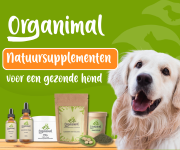Vaccines and their effects on our animals,
Printed with permission...
They Shoot Horses but Vaccinate Dogs,
by Chrissie Mason B.R.C.P., Ph.D.
http://www.positivehealth.com
Have you ever wondered why some dogs or cats continually experience skin problems? Have you ever wondered why your dog has to constantly have its anal glands evacuated? Have you ever wondered why your friend's dog experiences allergies to grass pollens, fleas, house dust mites etc? Have you ever thought your own diligence in conforming to a Veterinary Surgeon's request, and the annual vaccine programme could, in fact, be killing your beloved pets, rather than improving their quality of life? Perhaps you are inadvertently exposing them to the ravages of the 20th century illnesses, of immune deficiency diseases. Those readers old enough to remember their own childhood animals may recall, a puppy being vaccinated at 7 to 8 weeks followed by a second dose at twelve weeks. If a particularly virulent epidemic was apparent in the neighborhood a booster injection was recommended, other than that this was the only time your domestic dog received vaccinations. A further observation of thirty years ago was that domestic cats in general, were never vaccinated.
Do we need annual vaccinations for our animals?
I run a very busy practice in animal healthcare, utilizing Homoeopathy, Biochemistry, Mineral and Enzyme therapy. I am becoming seriously concerned at the increase in the cases of Auto-immunedisease, and the Canine/Feline vaccination programme which I consider to be inextricably linked.
Certainly, I do not stand alone in holding these views, as a number of Orthodox Veterinary Practitioners have expressed their concern over the incidence of certain types of illness suddenly appearing after a vaccination has been administered. Often these are severe skin disorders, gastrointestinal disturbances, sickness and colitis symptoms, all of which have been observed and recorded. It would appear the subject is as controversial within animal husbandry as it is in the welfare programme of vaccinating children. Certainly opinion is very divided, and I feel we owe it to the animals and their long term future, to request an open, unbiased research programme. This should be conducted to ascertain if there is evidence to support the theory of vaccination being related to the increase of auto-immune diseases.
What is being done at present?
The Royal Veterinary College is currently conducting an investigation into Auto-immune disease, and this is at considerable cost within the research programme. Yet I am unaware of any involvement, within this research, of any Alternative Medical viewpoint, other than Orthodox Veterinary Surgeons who themselves use Homoeopathy as an adjunct to their practice. Many Orthodox Vets refuse to acknowledge the efficacy of using Homoeopathy or other complementary therapies within their practice, dismissing them as being unscientific and at worst, complete hocus pocus. Very often by using Homoeopathy as the primary medication one can achieve reversal or complete remission of symptoms, and in particular when 'Vaccinosis' is used as the diagnostic investigation and assessment, pertaining to symptoms displayed. Responsible owners are positively encouraged to have their animals vaccinated on an annual basis, and to this end appointment, reminder cards are sent out to clients. This encourages them to book up for the annual 'top'. Often the general rules pertaining to the vaccination procedures are ignored when the cat or dog is submitted to the Veterinary Surgery. As an example the temperature should be taken to check for any evidence of infection, and no animal should receive a further vaccine whilst displaying ill health or immune deficiency disorders. Yet owners are told that in the past, without the vaccine programme, thousands of animals were dying on an annual basis of illnesses such as hardpad, distemper and parvo-virus. However, one could begin to question if we are entering a phase whereby we are purely exchanging one cause of death for another, namely Aids in the animal kingdom. Furthermore concern is mounting for the quality of the cat/dog's life that is constantly exposed to the ill effects of the vaccine programme.
What is this 'Vaccinosis' we speak of?
Vaccinosis, or vaccinia is the term used to describe the set of symptoms recognized by Homoeopaths and other Naturopathic Healthcare Professionals, as being the morbid constitutional state engendered by the vaccine virus. The effects of chronic Vaccinosis are various but frequently include severe skin disorders, e.g. urticaria, excema, lupus vulgaris, warts, spongy tumours etc. In the canine world skin disorders are a serious problem currently affecting thousands of animals, ranging from minor skin symptoms through to complete and total alopecia. Once this state has been reached the cell metabolism is impaired and the nervous system is severely affected. This leaves the animal vulnerable, and exposed to various allergic reactions and allergens that would normally be tolerated, such as fleas and house dust mites. I suspect if one took a random number of supposedly healthy animals, and then exposed them all, to the same irritants and allergens, the chances are that a small percentage would display symptoms pertaining to an allergic reaction. However, when one begins to look at the reverse situation, i.e. more animals showing signs of allergic reaction than not, one must consider why this is happening. If the immune system is strong and at optimum potential, it should be able to safeguard the body, from attack. But this is not the current situation, more and more canines and felines are displaying symptoms of immune malfunction. To date the various pieces of research that have been conducted by independent sources, indicate the problem arises from two factors, namely the use of Multiple live vaccine material, as opposed to killed or treated viruses, and very importantly, the frequency of administration of vaccines.
How do vaccines affect animals?
The Multiple Live Vaccine offers a much stronger challenge to an animal's defense mechanism. As an example: a puppy of 7 weeks of age, and weighing only 2 lbs. will still be vaccinated with Canine Distemper, Parvo-virus, Leptospirosis, Parain Influenza and Hepatitis, all on the same day. The amount of vaccine given is often identical in proportion as that given to a Great Dane puppy, that would obviously weigh considerably more. In countries such as the United States of America and parts of Europe, this tremendous bombardment will often be followed just one week later by the rabies injection. How an animal can be expected to cope with such an accumulation of components, and all at one time, is quite extreme but in particular the young animal whose immune system has not yet been fully developed. The immunological tolerance of this situation is often extremely poor, and in certain instances an animal will display ill health within a few hours of the vaccine being administered. As the weeks go by many animals will display unfavorable response to the vaccine often bringing to the fore front inherited predisposition to other illnesses. Further evidence would suggest that vaccinating an animal during pregnancy or during the estrus cycle can inhibit hormonal function. This not only creates physical symptoms to the dam, but can be passed on through the gestation period to the unborn puppies. In severe cases of Vaccinosis puppies may be delivered still born or already displaying skin disorders. It is a clinical fact that following parvo-virus vaccine as an example, the number of white cells in the circulation, decreases for a period of time, thereby rendering the animal exposed to illness as a result of the lowering of immune responses. Animals suffer stress just as do we humans. A further relevant factor involving the vaccine programme is related to stress, either emotional or environmental. There is a general acceptance in today's society that exposure to stress in the human quarter affects the functioning of the immune system; the same must be acknowledged within the animal kingdom. For example, the young puppy having recently left its mother, and fellow offspring, finds itself in a new and often frightening environment, is going to display stress related disorders. This will undoubtedly affect its response to the receptiveness of the vaccine programme, which is usually administered around the same time as the move into the new environment. There is a strange irony attached to the vaccine programme in so far as the pharmaceutical industry states. 'The administration of a vaccine should only be given to healthy animals'. However, if an animal was completely healthy it would not require the vaccination in the first place. Surely the correct way forward is to be looking at ways and means to enhance the immune system and bring it up to its optimum performance, principally by addressing the nutrition of the animal and using things such as essential biochemistry and homoeopathic nosodes incorporated into its welfare programme.
Is continual Vaccination really necessary?
In America the Veterinary Immunologists claim that vaccinations should only be given once or twice during an animal's life time. There is no need or evidence to prove that annual vaccination programmes are either essential or effective. On the contrary research suggests that no dog over the age of 7 years of age derives benefit from the annual vaccine programme. Furthermore, those animals submitted to the annual boosters, go on to display exacerbation of joint related ills in later life. Sadly even within the animal welfare programme professionals are influenced by the 'biomedical' model as outlined by the pharmaceutical industry. Injections have become the 'norm' as being the ultimate panacea to attain optimum health for the domestic animal. Yet we are seeing an increasing number of cases involving immune dysfunction, tumours, cancerous growths, severe skin disorders and behavioral disturbances. What, I wonder, is the comparison of auto-immune diseases in the domestic animal, compared to that of his counter part in the wild animal kingdom? Is this a worthy comparison to make when conducting research into auto-immune disease conditions? I am convinced it should be investigated.
What can be done about the Vaccinosis problem?
When I suspect a case of Vaccinosis in a domestic animal, I invariably treat it with Homoeopathic remedies for the specific condition coupled with immune enhancing formulas. I further stress to the owner that until the animal has showed signs of significant recovery no further booster vaccinations should be administered. However, problems soon arise when the owner returns to the Orthodox Veterinary system. They usually find pressure to bear to have the cat/dog re-vaccinated as soon as possible. The results of which can vary considerably. If the animal's immune system has recovered sufficiently it may well withstand the vaccine without too many problems, however, if the immune function is still below par, exacerbation of original symptomology is generally displayed within a few days of the vaccine taking place. A further occurrence observed by some Veterinarians is that of a tumour or growth appearing directly on or around the sight of the annual injection, this is particularly noticeable in the feline world, and can take the form of fibrosarcoma. Indeed, the list of symptoms that can be linked with the over exuberant vaccination programme appears endless: warty growths, tumours of both malignant and benign type, seizures, skin problems, bone and joint disorders. During the current investigations being carried out by the Royal Veterinary College, it has been observed that many of these auto-immune diseases commence as skin disorders. Aside from the inherited factor as displayed in certain breeds such as West Highland Whites, the disease occurs as a result of the immune system attacking the skin. Furthermore, they have also observed auto-immune blood disease leading to hemolytic anaemia - cast your mind back to the earlier fact pertaining to the parvo-virus vaccine. Following vaccination the white blood cells are severely diminished and their function temporarily impaired! A further and most alarming disease currently being observed by the R.V.C. is that of systemic Lupus Erythematosus. This disease eventually affects many body systems including red and white blood cells, and the joints, skin and kidneys. Reflect back to the inclusion of symptoms of Vaccinia as defined by Homoeopaths, does it not include all of the aforementioned as being contributory to this disease syndrome?
Why then the insistence on annual Vaccinations?
There are over 6 million families in England that own a dog, and this is increasing annually. The number of animals that will fall foul of one or more of the afore-mentioned symptoms will increase, as the vaccine programme is vehemently maintained by the Orthodox Veterinary Surgeons. The vaccine programme is a highly lucrative part of a Veterinary practice and a vaccine can vary in cost from 15 to 30 pounds per time. Some sources purport as much as 30% profit in a Veterinary practice is obtained from the vaccine programme. Smith Kline Beecham Animal Health division specialized in vaccines and earlier this year sold its animal division for 920 million pounds. It is hard not to become cynical, as to why the Veterinary profession and the drug companies do not want the problem of Vaccine related illness properly and accurately investigated. Yet morally what are we doing to our domestic animals, where is their future and moreover the quality of their lives? We must address the situation now. Certainly the weaker among their species will become even more vulnerable and are we not witnessing the 'genetic engineering' of their long term destiny, maybe to extinction as we know them today? Having shared most of my life with domestic animals I can only view the world as an empty shell should it succumb to being devoid of cats, dogs and the like. Can we just turn our heads and ignore their plight or do we, should we, acknowledge their cry for help? Are we really vaccinating animals on an annual basis with large doses of multiple live vaccine substances because we are committed to the programme, and because we feel it is right? Or are we exposing our beloved friends to a lifetime of hell and deprivation due to vested interest?








